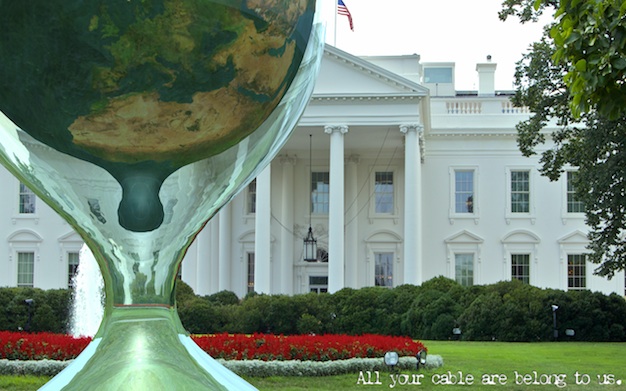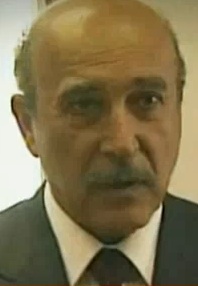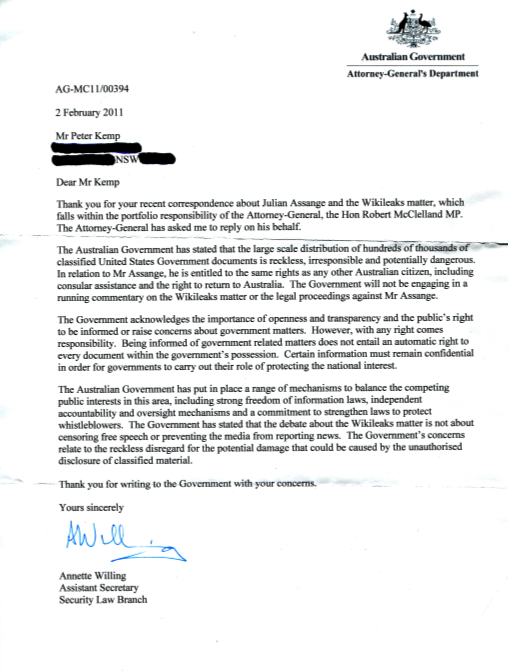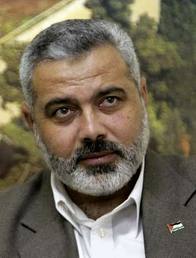Egypt's Supreme Military Council has had only three public meetings in it's history. The first one was in 1967, the second was in 1973 and the third took place today. In it they announced that they had convened the meeting in response to the current political turmoil and that they would continue to convene such meetings. It is most significant that Mubarak didn't chair the meeting as he normally would have. Instead the meeting was chaired by Defense Minister Mohamed Tantawi. The statement says
"Based on the responsibility of the armed forces and its commitment to protect the people and its keenness to protect the nation... and in support of the legitimate demands of the people [the army] will continue meeting on a continuous basis to examine measures to be taken to protect the nation and its gains and the ambitions of the great Egyptian people,"
Mubarak has stepped down as Commander-in-Chief of the Army!
 The Telegraph: Suleiman told Israel he would 'cleanse' Sinai of arms runners to Gaza
The Telegraph: Suleiman told Israel he would 'cleanse' Sinai of arms runners to Gaza
"Omar Suleiman, the new vice-president of Egypt, told the Israelis he wanted to start “cleansing the Sinai” of Palestinian arms smugglers, according to leaked cables."
The Telegraph: Egyptian 'torturers' trained by FBI
"The US provided officers from the Egyptian secret police with training at the FBI, despite allegations that they routinely tortured detainees and suppressed political opposition."
The Telegraph: Mohamed ElBaradei was 'too soft on Tehran’
"The United States and Israel warned that Mohamed ElBaradei, a key leader of the Egyptian opposition, was soft on Iran and was becoming “part of the problem” in the Middle East, according to leaked diplomatic cables."
The Telegraph: Hosni Mubarak told US not to topple Saddam Hussein
"Hosni Mubarak told Dick Cheney, the former US vice-president, “three or four times” not to depose Saddam Hussein, according to leaked cables."
El País: Frei, un perdedor con cara de perdedor (Frei, a loser with the face of a loser)
When Google Marketing Executive for Middle East and North Africa [MENA] Wael Ghonim went missing amidst the chaos that was enveloping Cairo in the first week of the uprising in Egypt, Google started a search. So did friends and family.
He took six days off from Google, saying he had to take care of some "personal business." The day before the big January 25th protest he tweeted "Heading to Tahrir square now. Sleeping on the streets of Cairo, trying to feel the pain of millions of my fellow Egyptians. #Jan25"
His last tweet, before he went missing was on Thursday, 27 January. He was helping another Internet user get around Egypt's web censorship:
@Ghonim how can you tweet when its blocked??
He responded:
@SweetOwl proxy servers
At first Google refused to confirm that Wael was missing, In an email, a spokeswomen said "We care deeply about the safety of our employees, but to protect their privacy, we don't comment on them individually."
More Egyptians than ever turned out demand an end to the Mubarak regime today, putting to rest speculation that the protest movement was running out of steam. Thousands of new faces were to be seen among the protesters that turned out for massive Tuesday demonstrations in Cairo, Alexandria and many other Egyptian cities. Many observers said the crowds in Tahrir (Liberation) Square in Cairo were even larger than they were for last Friday's protests. And they turned out not only in Liberation Square but in other areas of Cairo and all over Egypt. Hundreds of thousands of Egyptians gathered again in Alexandria and thousands protested outside the parliament building a short distance from Tahrir.
Vice President Omar Soleiman warned ominously that his government "can't put up with continued protests" and then added emphatically that there would be no resignation of Mubarak and "no ending of the regime." For three decades the Egyptian people lived in fear of the Mubarak regime and especially the police state apparatus that [EGIS] Egyptian General Intelligence Service Chief Omar Soleiman constructed and then headed. Now the fear is gone. So the struggle between a growing number of Egyptian people and the Mubarak regime settles into a siege on this the 16th continuous day of demonstrations with protesters still holding Liberation Square.
Los cables del Departamento de Estado de EEUU siguen haciéndose públicos cada día, tanto en la página central de Wikileaks como en sus miles de ‘espejos’ diseminados por la red. Es una certeza que la revelación del funcionamiento íntimo de los gobiernos corruptos de Túnez y Egipto han inspirado las transiciones democráticas que se están intentando en estos momentos. Los ciudadanos de ambos países han reaccionado al ver de manera directa y cándida las negociaciones a puerta cerrada y la corrupción opresiva de su clase política, que los reprime para satisfacer sus intereses y los de sus aliados.
En el caso particular de Egipto el escenario al que se ha llegado es en extremo complejo, algo causado mayoritariamente por ser este un país intermediario en las relaciones entre Israel y Palestina, y de manera más general en todo Oriente Medio. Ya en un cable del año 2007 (07CAIRO1417) el embajador de EEUU en Cairo dice que "la sucesión presidencial es el elefante en la habitación de la política egipcia. A pesar de los incesantes rumores nadie en todo Egipto tiene la certeza de quien va a sustituir a Mubarak, ni tampoco como esa sucesión se va a llevar a cabo”. Estos problemas son los propios de un régimen opresivo, que tiene que ejercer sus intereses en contra de la voluntad de sus ciudadanos; algo que, por su parte, el propio gobierno admite, como nos muestra otro cable de 2009 (09CAIRO1468) en el que el ex ministro Dessouki reconoce que las elecciones de 2011 representarían de manera casi segura un problema de seguridad, que, sin embargo, podría ser aplacado ya que “la sublevación no es parte del espíritu egipcio”.
Congressional delegation meeting in June 2008 detailed in cable
 A recently released cable describes three congressional delegation meetings with Egyptian President Hosni Mubarak, Egyptian Vice President Omar Suleiman and Foreign Minister Aboul Gheit. The congressional delegation present at the meetings included Rep. Gary Ackerman (D-NY), Rep. Sheila Jackson-Lee (D-TX), Rep. Thad McCotter (R-MI), Rep. Randy Neugebauer (R-TX), Rep. Russ Carnahan (D-MO), Rep. Al Green (D-TX), and professional staff members David Adams, Jamie McCormick and Howard Diamond.
A recently released cable describes three congressional delegation meetings with Egyptian President Hosni Mubarak, Egyptian Vice President Omar Suleiman and Foreign Minister Aboul Gheit. The congressional delegation present at the meetings included Rep. Gary Ackerman (D-NY), Rep. Sheila Jackson-Lee (D-TX), Rep. Thad McCotter (R-MI), Rep. Randy Neugebauer (R-TX), Rep. Russ Carnahan (D-MO), Rep. Al Green (D-TX), and professional staff members David Adams, Jamie McCormick and Howard Diamond.
The meetings described in 08CAIRO1416, on CODEL Ackerman (“congressional delegation”) posted by Norwegian newspaper Aftenposten focused on Israeli-Palestinian developments (the building of a “calming period”), Egypt’s regional relations, and human rights criticisms of Egypt.
On Sunday, the Palestinian Health Ministry in Gaza warned of an impending 'public health disaster', reported first on WL Central here. In a press release on the organization's Web site, the Ministry states that the situation could include the death of hundreds of people, including cancer patients, those with tumors, and those in need of both kidney dialysis and intensive care.
Gaza War
Gaza's long-suffering has increased exponentially since Operation Cast Lead in December 2008, when Israel launched air attacks on Gaza in response to rocket and mortar fire by Hamas. The incident was preceded by an Israeli incursion into Gaza in November 2008 "to destroy what Israel said was a tunnel on the Gaza-Israel border dug by militants to infiltrate into Israel and abduct soldiers." (Source: Wikipedia)
Cable 08TELAVIV1984, released by Wikileaks today, is headlined at Uruknet "New Wikileaks cable shows 2008 war on Gaza was unprovoked: Israel knew Hamas was enforcing ceasefire" referring to the 2008 massacre that resulted in approximately 1,400 Palestinians killed in 22 days, an operation in which Israeli soldiers had orders to "cleanse" entire neighbourhoods, orders which they carried out. That is evident in the first part of the cable, where MOD Arab Affairs Adviser David Hacham, says Suleiman was keeping the pressure on Hamas, but the Israelis were frustrated at Hamas' 'stalling tactics' - Hamas was demanding Egyptian guarantees that Israel would not attack Gaza once Shalit was released. Regarding the Tahdiya, Hacham said Barak stressed that while it was not permanent, for the time being it was holding. There have been a number of violations of the ceasefire on the Gaza side, but Palestinian factions other than Hamas were responsible. Hacham said the Israelis assess that Hamas is making a serious effort to convince the other factions not to launch rockets or mortars.
The cable also returns to Egypt's anti-smuggling efforts, enforced by Israel and the US, and this time Israel has "decided to praise Egypt's performance publicly both in genuine acknowledgement of some improvements in destroying tunnels and in order to show the Egyptians that Israel was capable of praising as well as criticizing them. In private, however, Barak also pushed the Egyptians to do more, particularly in terms of stopping the smuggling well before the arms reach the Gaza border."
Today, Wikileaks released two more cables detailing Israeli pressure on the residents of Gaza Strip. As reported by WL Central here, the closure of tunnels bringing basic supplies into the Gaza Strip from Egypt have caused an urgent humanitarian crises for the people of Gaza. But US state cables show Israel pressuring the US to link aid to Egypt with the complete closure of those tunnels and the prevention of any supplies reaching Gaza through Egypt. Egypt's new vice president's involvement is also discussed.
In November of 2007, Israel Security Agency (ISA) Director Yuval Diskin met with US officials to discuss the 'problem' of supplies moving from Egypt to the Gaza Strip. In 07TELAVIV3258 Diskin outlines "a growing crisis in Israeli-Egyptian relations over smuggling across the Gaza border". Diskin told the US representatives that the ISA had, on several occasions, provided Omar Suleiman, Chief of Egyptian Intelligence Services, with detailed intelligence on the names of smugglers. In 2005, Diskin said he met personally with Suleiman in Egypt, at which time Suleiman promised personally to take responsibility for "cleansing the Sinai." Despite these promises, and Israeli offers to initiate joint operations, Diskin said Egypt has not acted to eliminate the smuggling networks. In Diskin's view, there is a core policy problem, in that the Egyptians view themselves as the primary mediator between the Israelis and Palestinians, and are careful not to alienate either side. "This is not possible with Hamas in Gaza," insisted Diskin.

For many in Tahrir Square, his presence was why they had come out February 8. Ghonim, who was released on February 7 by authorities, played a key role in organization demonstrations against the regime before being arrested in late January.
He was seized in the Egyptian capital when he was with tens of thousands of protesters in the Square. Al Jazeera reported Ghonim was "picked up by three plainclothes men on the street, pushed into a car and taken off for interrogation by state security members."
Ghonim has tried to minimize his role in the revolution. He said after his release, "Please don't make me a hero. I'm not a hero. I have been asleep for 12 days."
The Australian attorney general's response to an open letter to the Australian Prime Minister Julia Gillard re Julian Assange

 The Norwegian newspaper Aftenposten has published a set of cables that shed light on Omar Suleiman’s willingness to serve the interests of Israel. The man recently appointed as vice-president of Egypt, according to a cable from 2005, was willing to help former head of security in the Israeli Defense Ministry Amos Gilad by guaranteeing there would be no democratic elections in Gaza in 2006. He was also willing to help Israel better manage the Rafah crossing between Gaza and Egypt.
The Norwegian newspaper Aftenposten has published a set of cables that shed light on Omar Suleiman’s willingness to serve the interests of Israel. The man recently appointed as vice-president of Egypt, according to a cable from 2005, was willing to help former head of security in the Israeli Defense Ministry Amos Gilad by guaranteeing there would be no democratic elections in Gaza in 2006. He was also willing to help Israel better manage the Rafah crossing between Gaza and Egypt.
Cables released also reveal that a key motive for opposing Hamas was a fear that the Muslim Brotherhood would be emboldened. 05TELAVIV5864 details a meeting that Gilad wanted kept secret. Gilad talked about his fear of the Palestinian uprising movement Hamas, which was expected to get a large amount of the vote in the democratic elections in January 2006. Gilad was afraid that Hamas would win the election and that a Hamas win would "destroy everything."
 Hundreds of Hamas supporters in Gaza City protested in the streets on February 3 in support of the Eyptian revolutions and against Egypt's president Hosni Mubarak with the apparent tolerance or encouragement of the Hamas government. But later this week, a group of journalists and bloggers who organized their own protest had their protest broken up. Six women and eight men were arrested, and two of the women were beaten.
Hundreds of Hamas supporters in Gaza City protested in the streets on February 3 in support of the Eyptian revolutions and against Egypt's president Hosni Mubarak with the apparent tolerance or encouragement of the Hamas government. But later this week, a group of journalists and bloggers who organized their own protest had their protest broken up. Six women and eight men were arrested, and two of the women were beaten.
In Ramallah rallies were also broken up before they started. The Palestinian Authority police beat protesters with clubs and arrested two at a rally for Egypt in front of the Egyptian embassy on Sunday. "Our rally was simply in support of Egypt," one protester told Ma'an by phone, "we said nothing against the PA, we were not even out in the street." Earlier the same day, the Palestinian Authority had organized a rally in support of Mubarak which accused Egyptian opposition leader Mohammed El Baradei of being a CIA agent. The pro-Mubarak rally attracted a few dozen, the rally for the Egyptian people hundreds.
The rallies now appear to have changed from simply supporting Egypt to including calls for reform in Gaza. A Facebook page appeared on January 28 calling for a revolution in Gaza and naming February 11 a day of protest against the Hamas government. Four days later, another page was set up on Facebook, calling for a revolution in Ramallah and the ouster of President Mahmoud Abbas.
 The Telegraph: Israel's secret hotline to the man tipped to replace Mubarak
The Telegraph: Israel's secret hotline to the man tipped to replace Mubarak
"The new vice-president of Egypt, Omar Suleiman, is a long-standing favourite of Israel's who spoke daily to the Tel Aviv government via a secret "hotline" to Cairo, leaked documents disclose."
El País: Estados Unidos cree que nunca se sabrá si el expresidente chileno Eduardo Frei fue asesinado (The United States believe it will never be known if the Chilean ex-president Eduardo Frei was assassinated)
"El que fuera máximo mandatario entre 1964 y 1970 murió tras someterse a una operación rutinaria de hernia en la que contrajo una infección bacteriológica. (The one who was maximum leader of Chile between 1964 and 1970 died after a routine hernia surgery in which he got a bacteriologic infection.)"
El País: SCENESETTER FOR VISIT OF SPECIAL ENVOY MITCHELL TO DAMASCUS
This is a first hand eyewitness account from a friend of mine who is in Egypt right now.
25 Jan 11 – The Beginning
I had made up my mind not to go to Tahrir; I had hoped for the best for the protesters. Though the protest was legal, I had a great deal of trepidation about how events could unfold. Hosni Mubarak is well reputed to wield a heavy hand over his people. However a friend wanted to go. Out of concern for him I went. I thought I knew the streets downtown better and could navigate us out more easily. I was wrong.
Amidst reports from newspapers like the Telegraph that secretary general of the Arab League, Amr Moussa, might be someone who takes over for President Hosni Mubarak, it seems worthwhile to look at what released WikiLeaks cables reveal about the US perception of Moussa. The US has close ties with Egypt and gives much military aid to Egypt. Although the people in Egypt revolting against Mubarak have the upper hand right now, any leader appointed to lead Egypt would likely have some support from the US.
At least since 2006, the issue of who would succeed Mubarak has been a foremost issue for the US. And, as indicated by 09CAIRO874, the US has noted Moussa could be a possible candidate for taking over the presidency:
Al Jazeera says this about the video piece which they showed for the first time this evening and put on YouTube minutes later, describes how "Tunisian members of Anonymous, the same group of hackers that targeted anti-WikiLeaks sites" are now supporting the struggle in Egypt. The piece features an interview with the Tunisian hacker anon.m. It is less than 2 minutes long:
4:00pm Cairo - In the face of unrelenting violence from Mubarak's thugs, protesters have come roaring back with a massive "Day of Departure" demonstration today as the White house scrambles to work out a deal in which Mubarak would leave immediately. Waving Egyptian flags and chanting the national anthem, protesters in their thousands are filling Tahrir or Liberation Square in Cairo as Friday pray lets out. More than a million people are reported to have flooded into Liberation Square, another million are reported in Alexandria and the numbers are still growing. Thongs of protesters can still be seen crossing the Nile River at the October 6th Bridge into Liberation Square. In the face of all the death, destruction and injury cause by the Mubarak regime in the past few days, the masses remain steadfast in their demand that "Mubarak must go now!"
While Egyptians continue to maintain their uprising against President Hosni Mubarak with a “Day of Departure" today, it is worth looking at what happened in Yemen yesterday. An opposition coalition of Yemenis mobilized in defiance of a plea from President Ali Abdullah Saleh to not protest, rally or engage in any sit-ins, and held their own "Day of Rage."
The protests were considered to be the largest anti-government demonstration that Saleh has “faced in his 32-year rule.” The Guardian reported protesters chanted, “Together we fight against poverty, corruption and injustice.” Given what has been happening in Egypt, the protesters hoped to mobilize in their Tahrir Square, but the government “beat them” to the Square and sent “hundreds of tribesmen to camp out there overnight.”
Protesters called for Saleh to “form a new government” and “let the Yemeni people decide who will rule them in clean, fair elections.”
‘The chant is يسقط يسقط حسني مبارك – Tell the world he is killing us’
As the Sun rises in Cairo on the tenth day of the Egyptian uprising, the protesters opposed to the government of Hosni Mubarak still hold Tahrir Liberation Square. They still hold it in spite of a night of horrific violence by pro-Mubarak thugs that attacked the peaceful protesters with machine guns, other guns and fire bombs. Overwhelming evidence is already mounting that this murderous gang was composed of police in plain clothes, NDP functionaries and loyalist and hired thugs. The army, which in previous days made sure all the protesters that entered the square were unarmed, stood by and did nothing while the assault took place.
The goal of the thugs was to drive the protesters from the square. In this they were not successful.
Theme by Danetsoft and Danang Probo Sayekti inspired by Maksimer